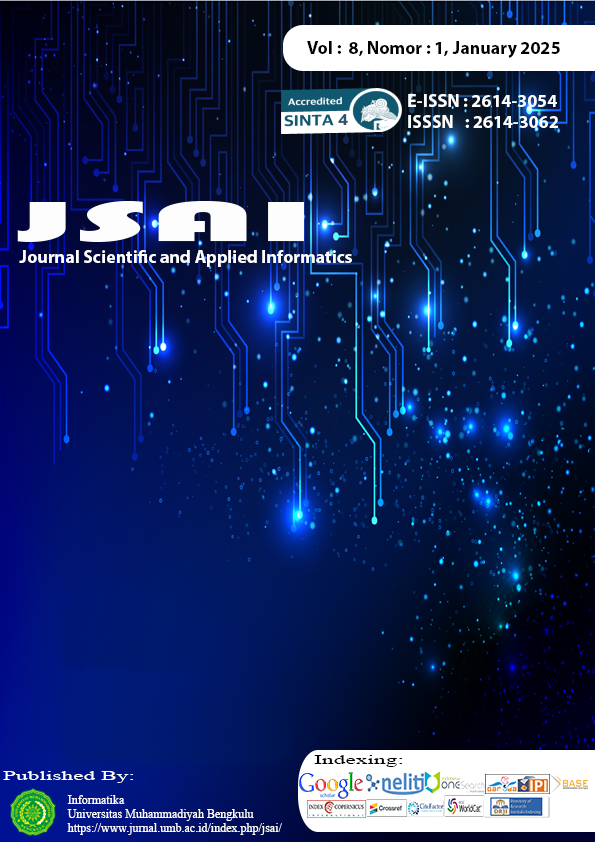Predicting the Sustainability of Small and Medium Enterprises (SMEs) Using Machine Learning Algorithms
DOI:
https://doi.org/10.36085/jsai.v8i1.7454Abstract
Small and Medium Enterprises (SMEs) contribute approximately 60% to Indonesia's Gross Domestic Product (GDP) and absorb more than 97% of the workforce. However, SMEs face various challenges that hinder sustainability, such as limited capital and market instability. This study aims to develop a predictive model to map the sustainability of SMEs based on variables that influence business continuity. The methods used include clustering with Agglomerative Clustering, K-Means, and DBSCAN, as well as classification using algorithms such as Logistic Regression, Random Forest, and XGBoost.
The results show that the Agglomerative Clustering method provides the best performance with a Silhouette Score of 0.68. All classification models initially achieved an accuracy of 1.0 with a standard deviation of 0.0, but indicated overfitting due to class imbalance between the "Continues" and "Does Not Continue" categories, where the minority class consists of only 16 data points. To address this issue, the application of the SMOTE (Synthetic Minority Over-sampling Technique) method and 5-Fold Cross-Validation was implemented. The results showed an improvement in the model's ability to recognize patterns in the minority class, making the model's accuracy more representative of both classes. This research is expected to provide valuable insights for the Office of Cooperatives and SMEs in Palembang to support the sustainability of the SME sector in Palembang.
Downloads
Published
Issue
Section
License
Copyright (c) 2025 Terttiaavini Terttiaavini

This work is licensed under a Creative Commons Attribution-NonCommercial-NoDerivatives 4.0 International License.







